In Bangkok, a chef is championing a cuisine he has branded sustainable
Neo-Indian, here’s a look at Chef Deepanker Khosla and the
Michelin-awarded Haoma
From a nomadic culinary adventure across Asia to establishing Bangkok’s first zero-waste restaurant, Chef Deepanker Khosla is making waves and taking strides as he makes the F&B world more sustainable.
05 April 2024
Share this exclusive content from Saladplate
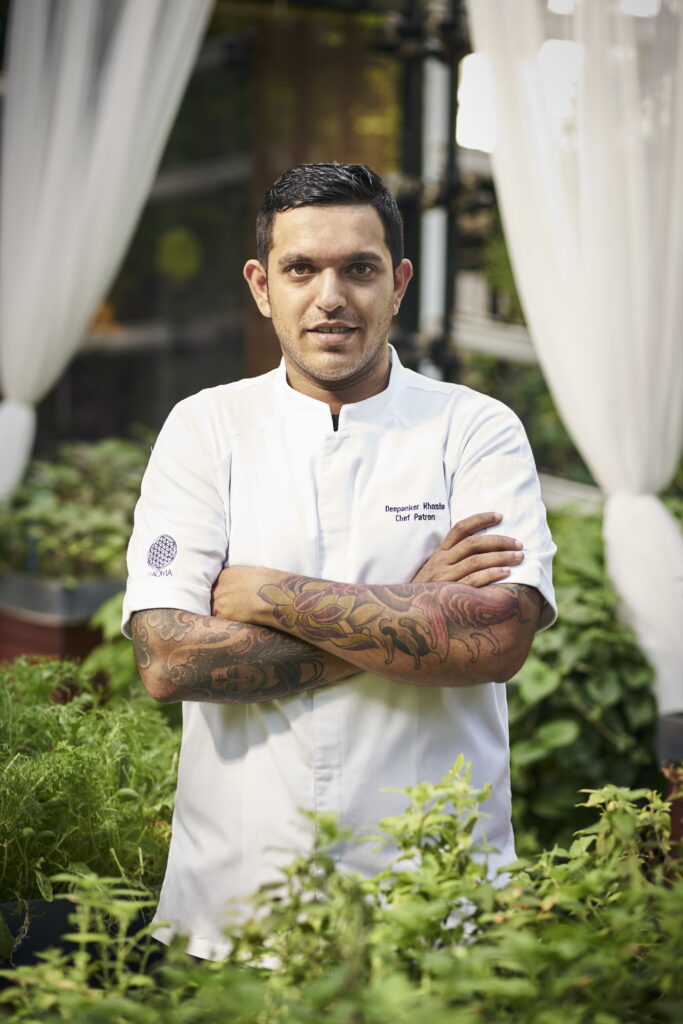
Chef Deepanker Khosla of Bangkok’s Haoma | Image credit: Haoma
There are many roads to becoming a world-renowned chef. Taking a seven-month detour around Asia in a natural gas-powered Tata truck hawking Indo-Mexican food is not your typical route but exactly what Chef Deepanker Khosla of Bangkok’s Haoma did. This trip (and a subsequent 13-day breakdown delay) was instrumental in helping him hone and fund his vision for Haoma, a sustainable, Neo-Indian restaurant and Thailand’s first urban farm and zero-waste restaurant.
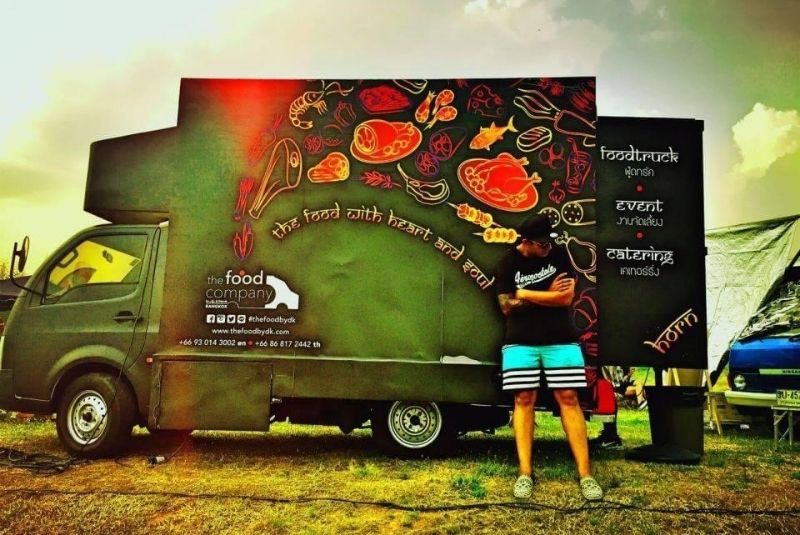
Chef hef DK’s Indo-Mexican food truck | Photo Credit: The World’s 50 Best
Born in Allahabad (now known as Prayagraj) India, the first Indian city to ban plastic bags, Chef DK as he’s popularly known is not a man who upholds convention. That he chose to locate Haoma in the heart of Bangkok at the intersection of the two main railway lines is a paradoxical oxymoron that’s not lost on anyone. If he could create a garden oasis-style 70-seater restaurant with raised garden plots, and rain-fed fish ponds with DIY sustainable systems for less than $20,000 – what’s to stop others from doing something similar or simply introducing sustainability measures within their establishments?
A 360 Passion For Food
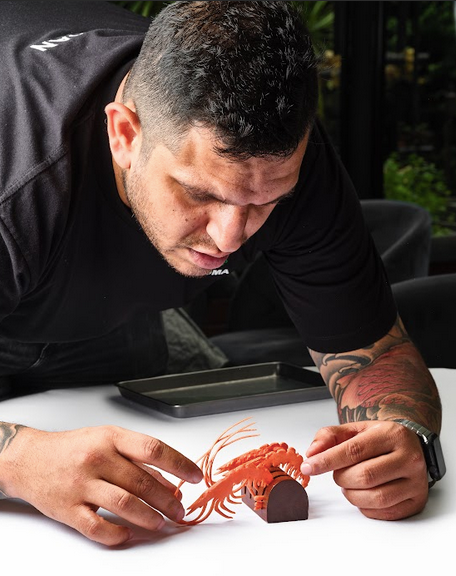
Image credit: Haoma
A passionate individual who has always wanted to do more than cook great food, he’s been vocal in many interviews about how Haoma is a way that he wanted to give back to the environment and show people a sustainable alternative.” I’m not a vigilante. I’m doing this for myself. Because it feels right. I’m selfish. I want to save the planet for myself. Not for anybody else. I want to create a better tomorrow for myself. I want to live in a bubble. And I’m creating this bubble for me and my people who work for me and my family.” he says candidly in an interview with New Worlder.
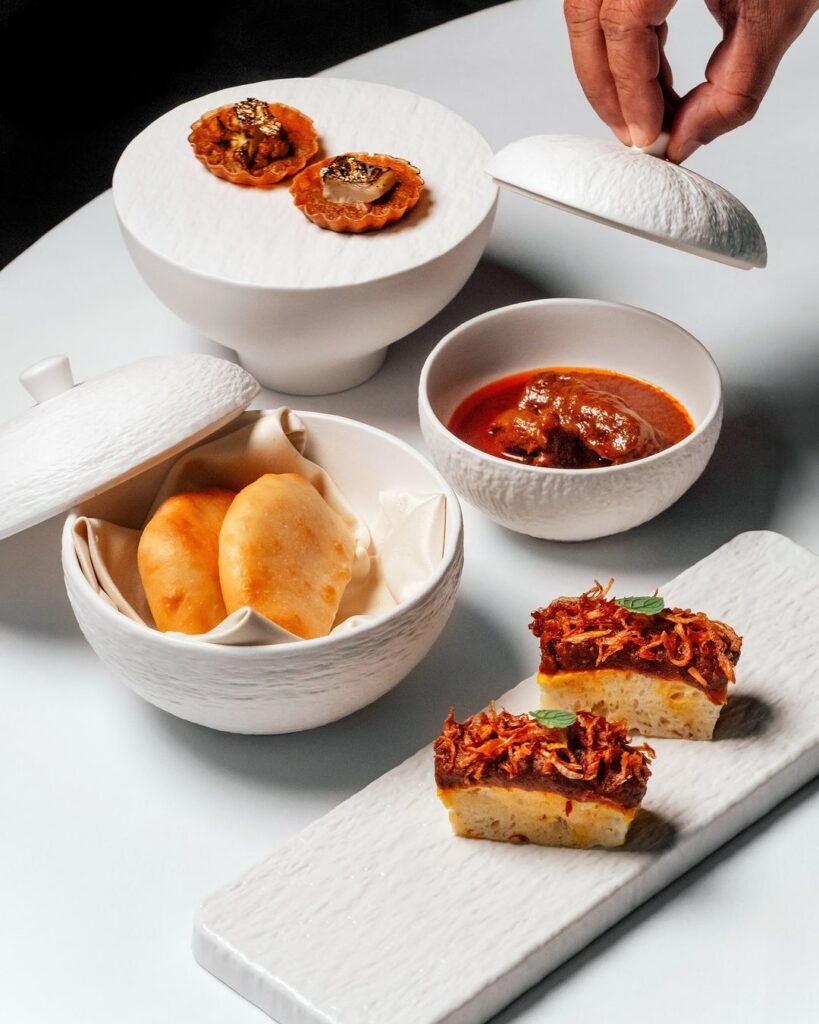
Image credit: Haoma
Image credit: Haoma
A meal at Haoma isn’t just about dining at one where the chef has been a recipient of the Champions of Change Award for The World’s 50 Best Restaurants 2021, and which also has a Michelin (and Michelin Green) star — it’s a thoughtful embrace that brings you closer to nature where you dine using all your senses. “Haoma’s experience is about being close to nature, and in turn, close to what being human truly is.” shared Chef DK in an interview with Superb. “The essence of my restaurant is to fill the gap between the guest and nature, complete the part that is missing.”
The Haoma Experience
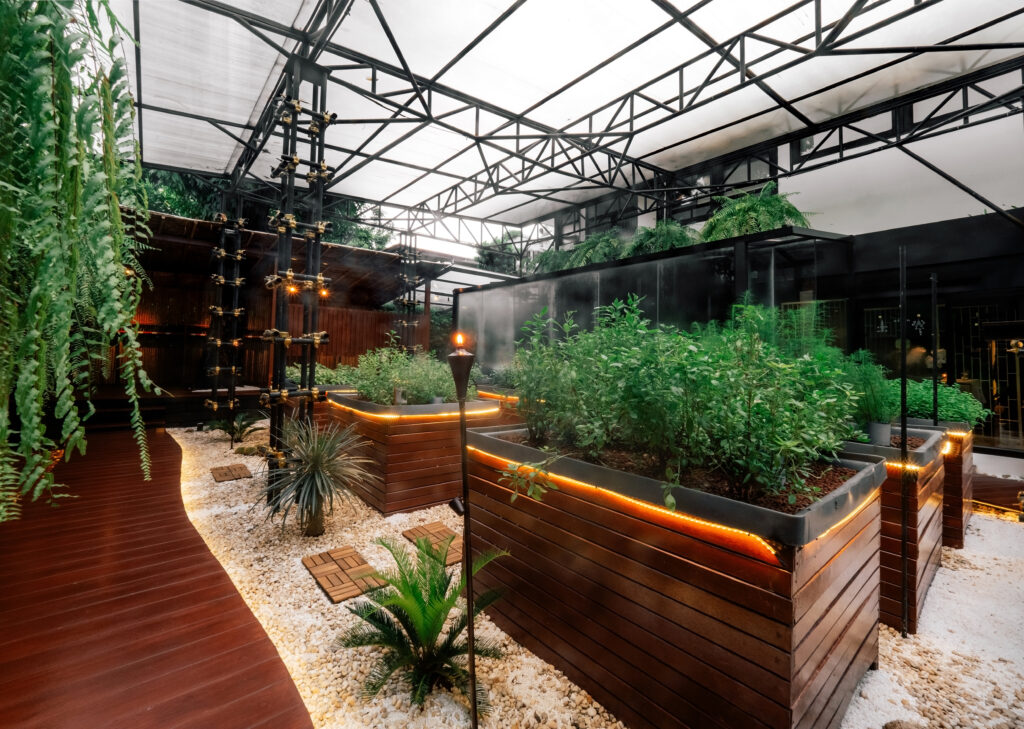
Thailand’s first urban farm and zero-waste restaurant | Image credit: Haoma
Upon arrival, guests are treated to a tour of the aquaponic and six-stack vertical farm garden, providing an intimate look at the ingredients, and even the fish – at one point there was 2,000 pi being grown on-site – destined for their plates so they understand Haoma and not just dine out on the theatrics of the 10 or 15-course tasting menu.
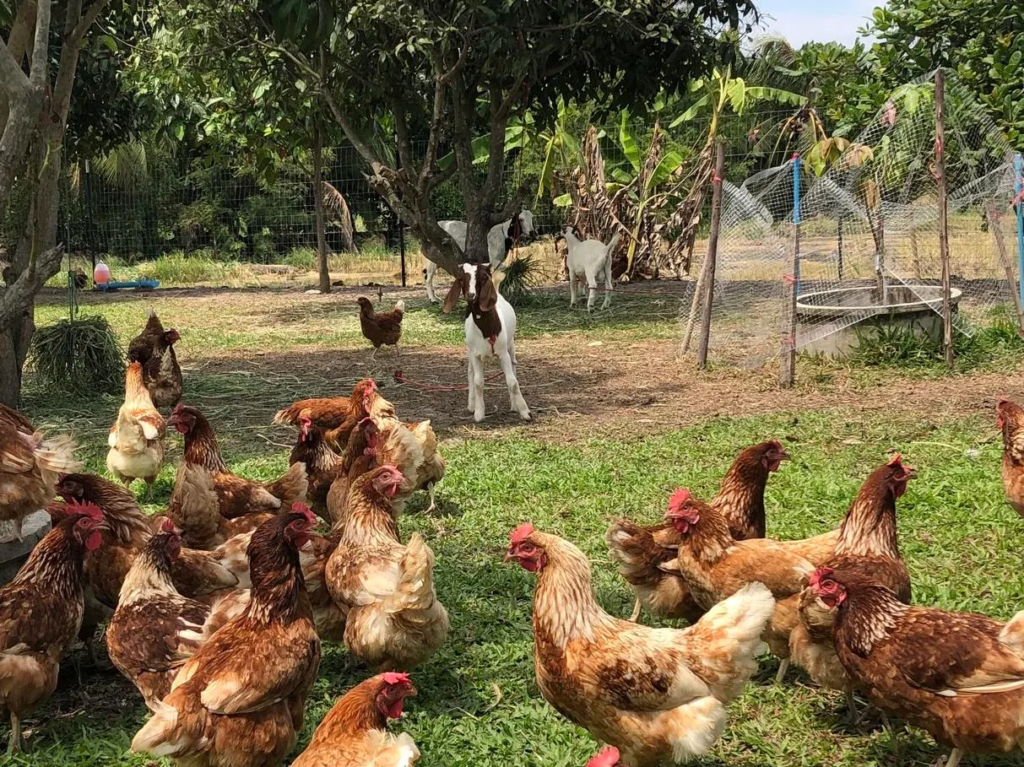
Haoma’s off-site farm in Bangkok’s Minburi area where 750 chickens, 12 goats, and 4 cows, 100% contribute to the restaurant’s evolving menus | Image credit: Haoma
Creatively curated using hyper-local Thai ingredients, all dishes use produce and ingredients grown on-site, or supplied by their farming partners in Chiang Rai, and some are reared at their off-site farm in Bangkok’s Minburi area where 750 chickens, 12 goats, and 4 cows, 100% contribute to the restaurant’s evolving menus.
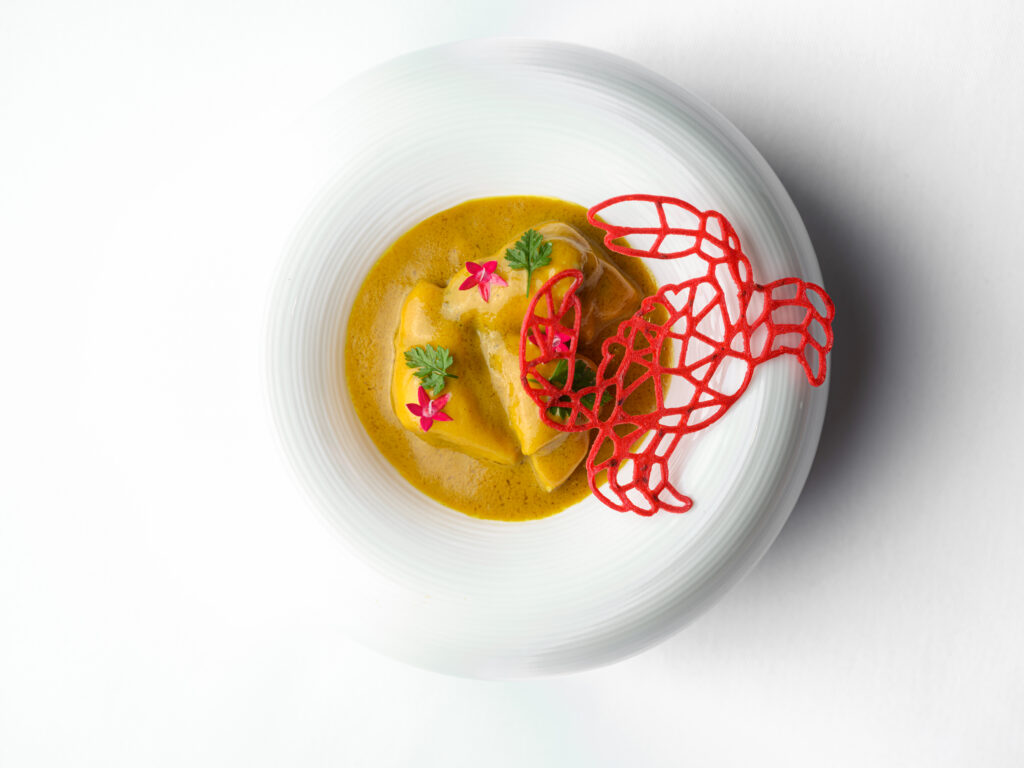
Image credit: Haoma
Everything from purified rainwater guests drink down to the signature Haoma in a Bite, a mini garden of ingredients harvested on the premises (there are more than 40 types of herbs, plants, and fruits grown there), sea urchins sourced via a local hand-dived supplier, served with their garden mint chutney, and even their cocktails made of scraps like upcycled kale, apple, and strawberry stems drives home the concept of sustainability, and how it does not need to be complicated but simple and very rewarding.
“Being sustainable and zero waste is not a checkered box for Haoma, it’s not something that you tick off and you keep moving forward. It’s something that we strive for, it’s the basis of employment in my restaurant. If you want to join me as a sous chef I don’t take a cooking trial I give you a questionnaire or 20 questions about how you can make this world better.” shares Chef DK in a podcast with Inside Ideas. “Sustainability for me is not just about getting vegetables that don’t have chemicals in them, it’s bigger than that. It’s about a sustainable environment, sustainable employment, and a sustainable society.”
Chef Deepanker Khosla’s Haoma is more than a restaurant. His zero-waste ethos and his pioneering approach to Neo-Indian cuisine have not only set a new standard for restaurants worldwide but have also sparked a conversation about the role of chefs and restaurants in the broader context of sustainability proving that with passion and innovation, the future of fine dining can indeed be green.
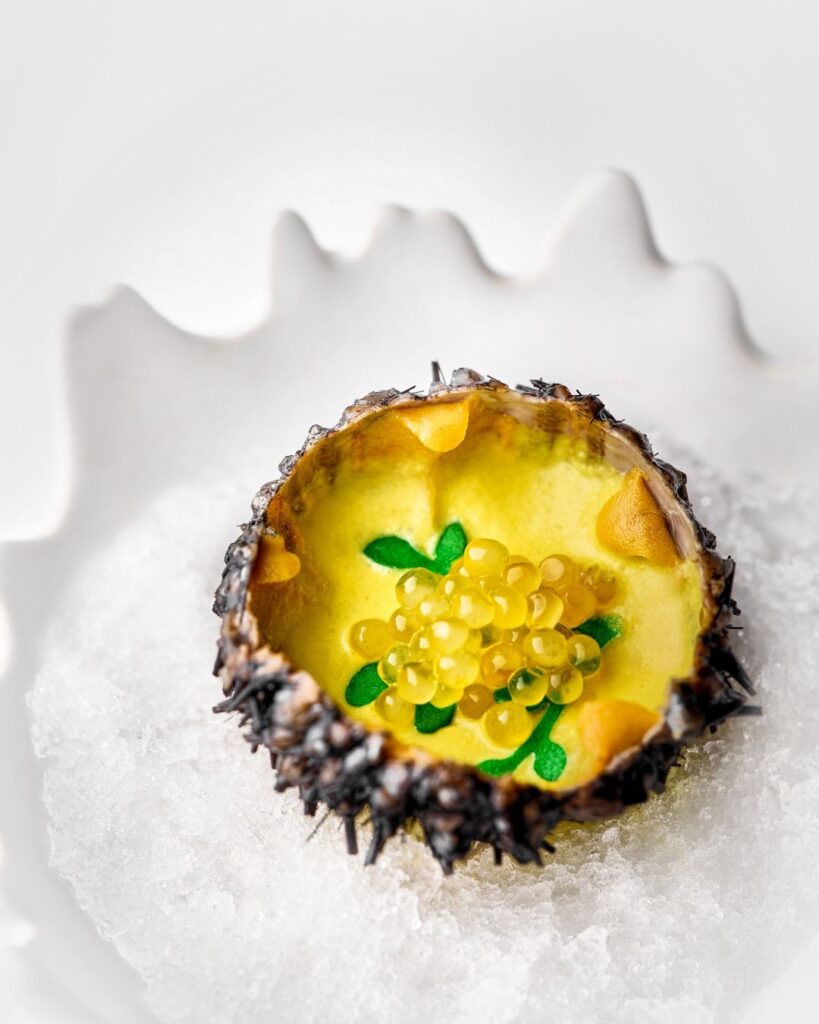
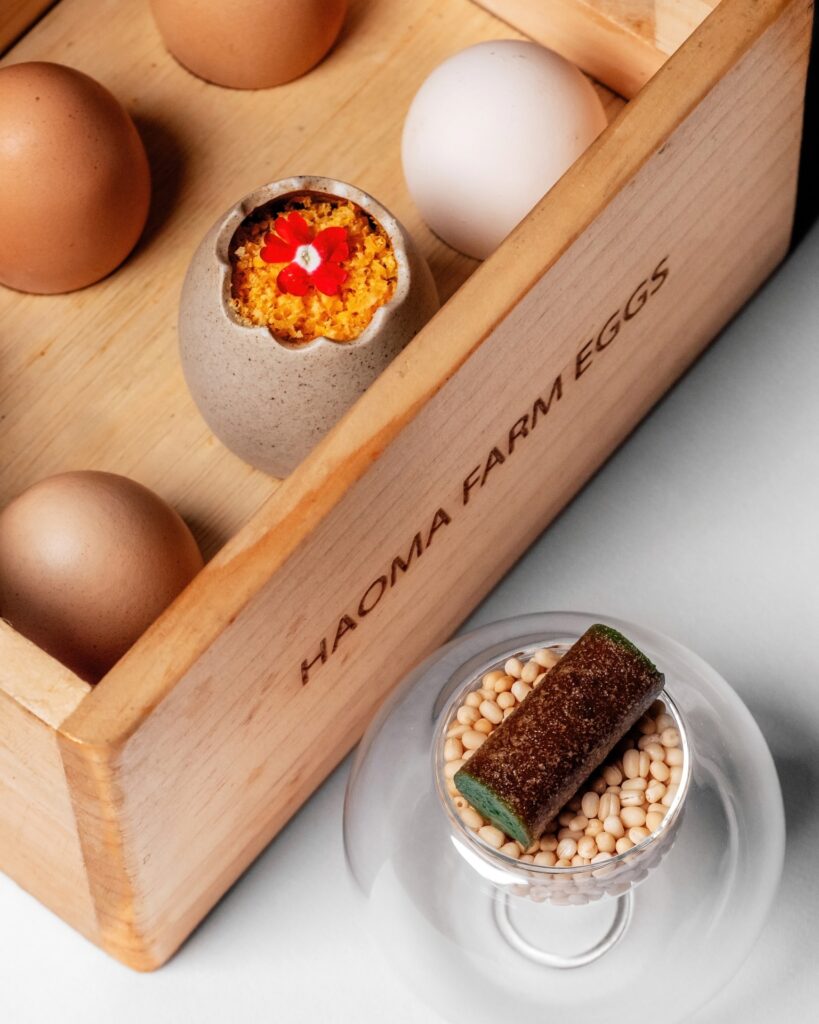
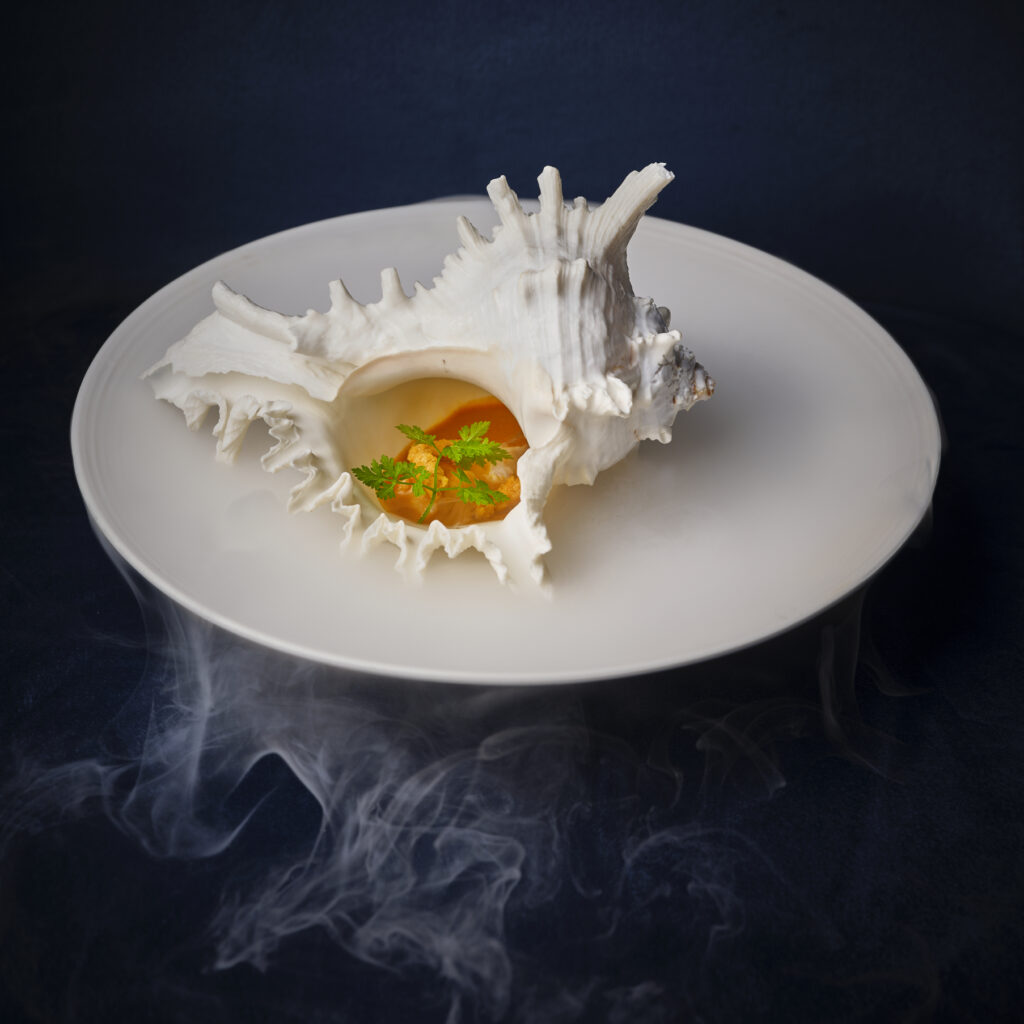
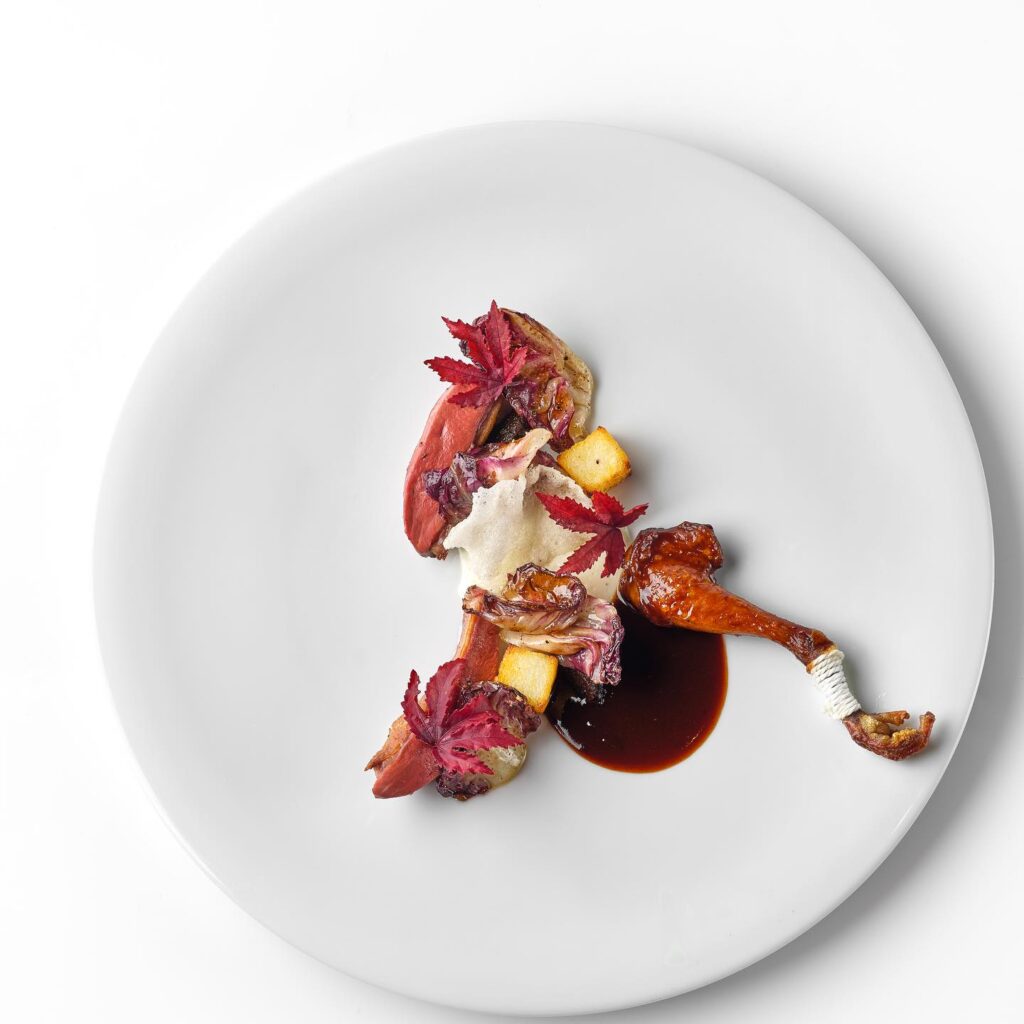
Image credit: Haoma
Author: Charlene Fang
Charlene Fang is a US-based writer, editor and content strategist. Originally from Singapore, she writes for lifestyle and travel publications such as Condé Nast Traveler, AFAR, Forbes Travel Guide and Louis Vuitton Guides and was previously an editor at CNNGO and Time Out. View her portfolio at www.charlenefang.co



